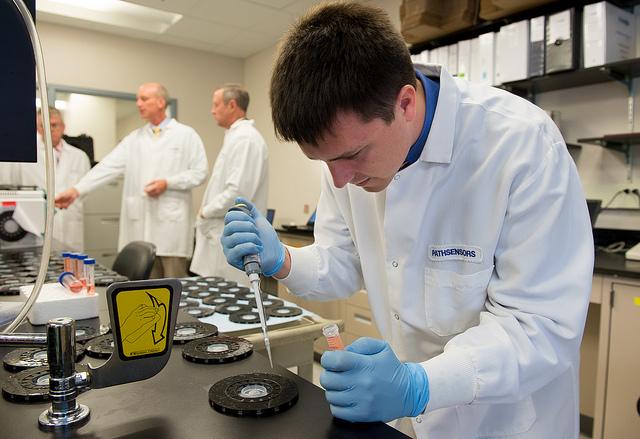Are we producing too many STEM grads?
According to the US Census, 74 percent of those with a bachelor's degree in STEM subjects don't work in STEM jobs.
Ever tell your mom that you wanted to be a rock star? An actor? A supermodel?
You probably got a raised eyebrow (or a long lecture).
But if you ever said you wanted to be a cancer researcher, a chemist, or a software engineer, it’s likely you landed on mom’s good side. Turns out, though, STEM jobs are harder to get than most of us think.
And the widespread belief that they’re tickets to financial success may be wrong.
We’re “graduating many more STEM graduates than there are STEM jobs,” says Hal Salzman, a professor of public policy at Rutgers who makes it his business to track the success of young job-seekers.
He says that two to three times more students get science degrees than actually find science-based jobs. In engineering and computer science, the picture is rosier, though not great: two-thirds of grads get jobs in their chosen field.
Why, then, is there so much pressure to amp up the role of STEM education? “We don’t want to just increase the number of American students in STEM,” President Obama said in March. “We want to make sure everyone is involved.”
To some degree, proficiency in science and math goes beyond career choice. Basic knowledge of STEM is crucial in a world increasingly shaped by data. But for young grads who suddenly realize that they’re not headed toward a stable career, reality can be tough.
The chances of becoming a cancer researcher, for example, are extremely slim. “If you look at the National Institutes of Health, which is the largest agency funding scientists and supporting science,” Salzman says, “their number one problem is what to do with the excess number — the large supply — of Ph.D. scientists.”
“I think a lot of students realize that partway through their program,” notes Ann Fiegen Durbin, who’s getting a Ph.D. in virology at Harvard. “And despite their passion for the research, they realize that it will be more realistic for them to take a different track.”
The intense competition for a job is increasingly funneling scientists into new professions: patent law, consulting, secondary education and even Wall Street (where those Ph.D.s in physics have found a lucrative refuge).
“On the one hand, we need to have good science literacy, and that’s positive,” Salzman says. “But that gets pushed into trying to create more people occupationally who become scientists, and that’s where we run into trouble.”
This story was adapted from an interview on the PRI radio show Innovation Hub.
